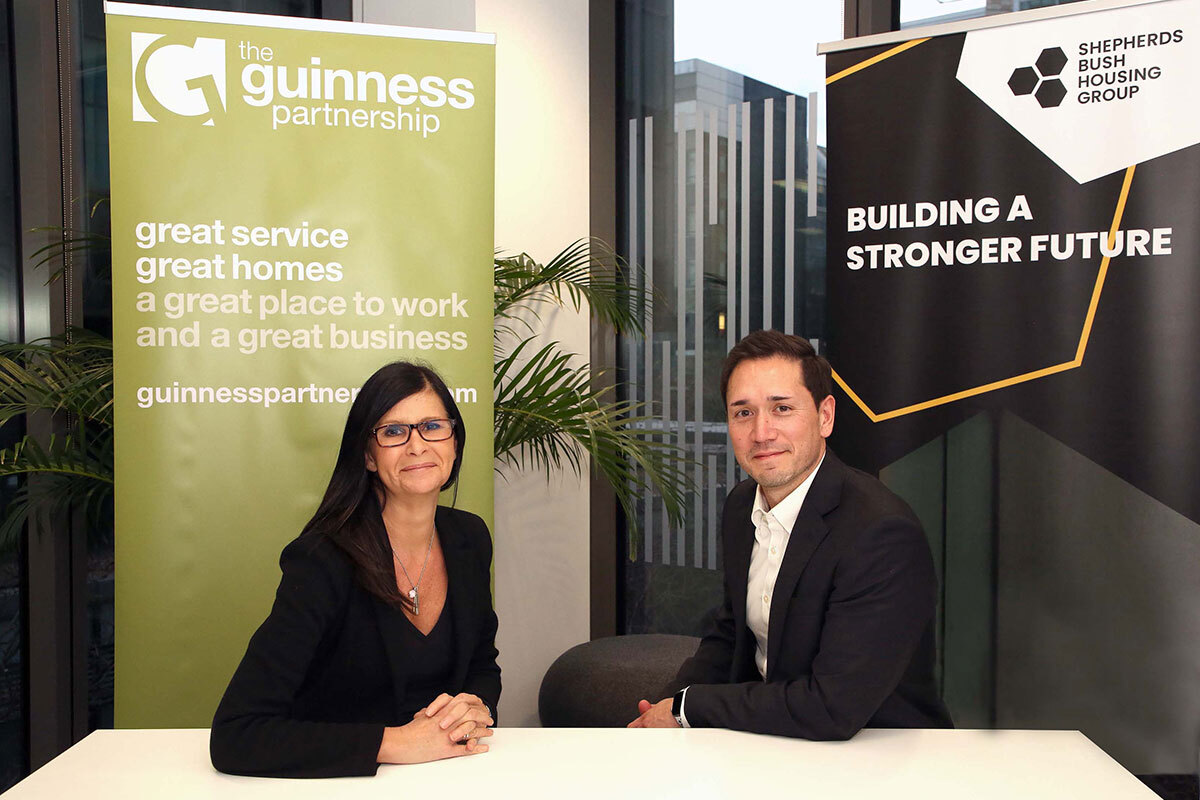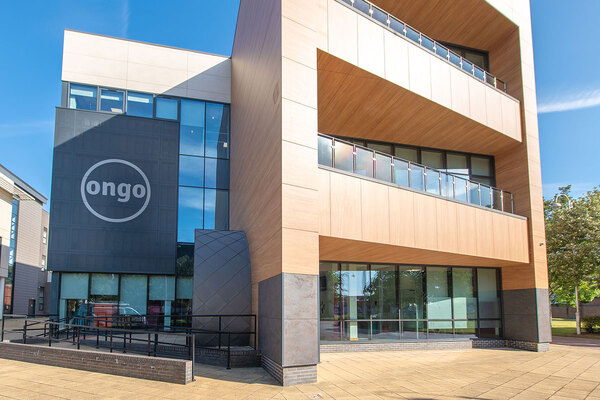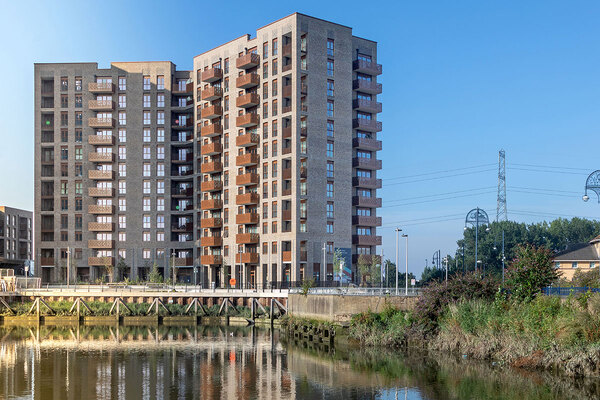You are viewing 1 of your 1 free articles
Guinness Partnership’s operating margin hit by repairs and remediation costs
Repairs, impairment and building safety remediation costs have dented the Guinness Partnership’s underlying operating margin by 8.6 percentage points.

The 70,000-home landlord said it had incurred £22m in impairment charges across properties under development, in its accounts for the year to 31 March 2024.
“Impairment charges reflect a combination of increasing construction costs, lower sales values and delays to completion of schemes,” it said.
It set aside provisions of £26.9m for building safety remediation costs at two leasehold schemes in London owned by Shepherds Bush Housing Association (SBHA), which became a subsidiary of Guinness last December.
“We are increasing our focus on the productivity and effectiveness of our repairs service, but acknowledge that some level of heightened demand is a ‘new normal’ which it is prudent to reflect in our budget for 2024-25 and beyond,” Catriona Simons, chief executive of Guinness, and Chris Wilson, the landlord’s chair, said in a joint statement.
Guinness also had to pay a £7.3m non-cash pension cessation charge after leaving defined benefit pension schemes in 2023, all of which brought its underlying operating margin down to 9.6%.
Overall, turnover dropped by 15% year on year due to a steep reduction in outright sales, which fell from £126.3m to £3.4m. The previous year’s figure included a bulk sale to a private investor.
The landlord reported an increase of £34.6m in its overall surplus, to £81m, due to an extra £63m in net assets brought in from the acquisition of SBHA.
Guinness’s earnings before interest, tax, depreciation and amortisation, major repairs included (EBITDA MRI) interest cover dropped significantly below 100%, falling from 107.8% to 33.1% in 2023-24.
With major repairs stripped out, the landlord’s interest cover was healthier, at 159%, but still lower than the previous period’s 238%.
Completions dipped from 814 to 608 year on year, while homes under construction also dropped 13.4% to 3,563. Starts totalled 576 homes.
Ms Simons and Mr Wilson said both starts and completions “were less than we had set out to do, reflecting the economic environment and pressures on our resources”.
“A number of our contractors fell into administration during the year, causing delays and rising costs on some schemes,” they said.
Last week, Guinness said it would demolish more than 30 homes left unfinished by collapsed modular house builder Ilke Homes.
Guinness invested £178.8m in maintaining and improving existing homes in 2023-24, up from £177.2m.
It said its social housing lettings had generated 87.7% of turnover, versus 66.1% the previous year.
The operating margin from social housing lettings decreased from 22.1% to 18.9%, while the operating surplus from this part of the business also dropped slightly by £3m to £76.1m.
Ms Simons and Mr Wilson said “it has continued to be an exceptionally challenging period for the social housing sector, including for Guinness”.
This month, Paul Love took over from Phil Day as chief financial officer of Guinness, after Mr Day left to join Peabody.
Sign up for our development and finance newsletter
Already have an account? Click here to manage your newsletters











